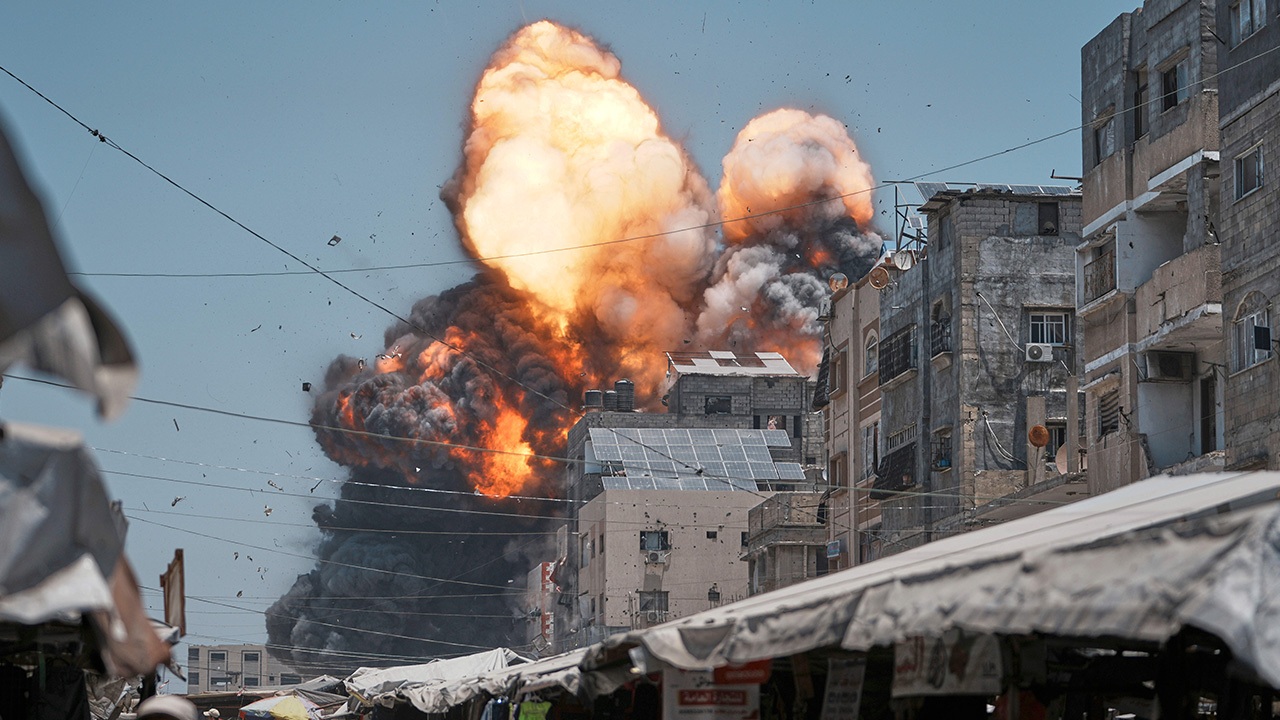Since late May 2025, the humanitarian crisis in Gaza has escalated catastrophically amid ongoing hostilities, with at least 875 Palestinians killed while waiting to receive essential aid such as food and medical supplies.
This tragedy has elicited widespread international condemnation.
These include a coordinated denunciation by 26 nations during a recent United Nations Security Council (UNSC) meeting, underscoring the urgency of addressing the lethal conditions facing Gaza’s civilian population.
The deaths occurred predominantly near aid distribution points, notably those operated by the Gaza Humanitarian Foundation (GHF), an organization supported by Israel and the United States.
Strikingly, hundreds were killed while queuing for basic sustenance, an occurrence described as “unbearable” and “unacceptable” by various UN representatives.
The scale of fatalities and injuries suffered by non-combatants underscores grave violations of humanitarian principles.
This is especially the obligation of occupying powers to ensure civilian access to food and healthcare, obligations Israel is accused of neglecting.
At the July 16, 2025, UNSC meeting convened by the U.K., Denmark, France, Greece, and Slovenia, the council members collectively condemned Israel’s “inhumane approach” to the Gaza crisis.
Tom Fletcher, the UN’s Emergency Relief Coordinator, emphasized that the humanitarian needs in Gaza must be met without placing civilians “in a firing line.”
He reiterated that Israel, as the occupying authority, is legally bound to safeguard the welfare of Gaza’s civilians by facilitating unobstructed aid delivery and minimizing operational harm.
The delegates agreed on multiple urgent demands: lifting restrictions on aid entering Gaza, ending forced displacement of civilians, and instituting an immediate ceasefire.
These calls came as the Israel Defense Forces (IDF) launched a new ground offensive targeting Hamas infrastructure, further exacerbating civilian casualties and displacement.
The offensive is part of a broader military campaign to dismantle Hamas but has intensified fears of escalating hostilities and humanitarian collapse.
The situation is compounded by accusations against the aid distribution mechanism.
The GHF-run system, criticized by UN agencies such as UNICEF and OHCHR, has been accused of being a “weaponized” or militarized humanitarian mechanism.
It has been regarded as a system that fails to meet international standards of neutrality and impartiality.
The OHCHR spokesperson noted that the current mode of aid distribution, controlled or influenced by the Israeli military, “constitutes a war crime” due to its violent obstruction and danger posed to civilians.
Moreover, the deaths at aid sites are not isolated incidents.
Since the conflict escalated in October 2023, the Gaza Health Ministry reports over 55,000 Palestinians killed and more than 131,000 wounded, reflecting a broader pattern of civilian suffering.
Recent days alone saw dozens of Palestinians killed near food distribution points under Israeli fire.
This signals that humanitarian efforts continue to be dangerously compromised by active hostilities and operational restrictions.
The Palestinian representative to the UN highlighted the existential nature of the crisis, condemning the ongoing violence as genocidal in effect.
The representative also called for the international community to cease being mere observers.
He detailed the devastating impact on Gaza’s children – 77 children killed or maimed daily.
Many of these children have lost parents or limbs, portraying the situation as a catastrophic failure of global responsibility and a moral imperative to act decisively to save lives.
International legal scrutiny has intensified alongside these developments.
Independent investigations into Israel’s conduct in Gaza reference violations of international humanitarian law and potentially genocidal actions, as outlined in reports citing the 1948 Genocide Convention.
Concurrently, international judicial bodies, including the International Criminal Court (ICC) and the International Court of Justice (ICJ), have sought to hold Israeli officials accountable for alleged war crimes.
Also, they have ordered halts to particularly destructive offensives in densely populated refugee areas like Rafah.
Efforts led by regional mediators such as Egypt, Qatar, and the United States aim to negotiate ceasefires and broker humanitarian access, but the conflict’s complexity and ongoing hostilities impede progress.
The repeated failure to secure sustained aid deliveries, accompanied by lethal attacks on civilians awaiting assistance, underscores a dire need for UN-led, neutral humanitarian mechanisms that can operate without militarized interference and risk to those in desperate need.
In summary, the coordinated international condemnation by 26 nations, alongside UN appeals, points to a growing consensus that the current trajectory in Gaza, constitutes a profound humanitarian crisis demanding:
- immediate cessation of violence,
- unconditional humanitarian access, and,
- accountability measures to protect civilians caught in the crossfire.
The said trajectory is marked by deadly restrictions on aid, escalating Israeli ground offensives, and mass civilian casualties.
This crisis exposes critical failures to uphold international law and human rights amidst prolonged conflict and underscores the imperative for global diplomatic and humanitarian intervention.



